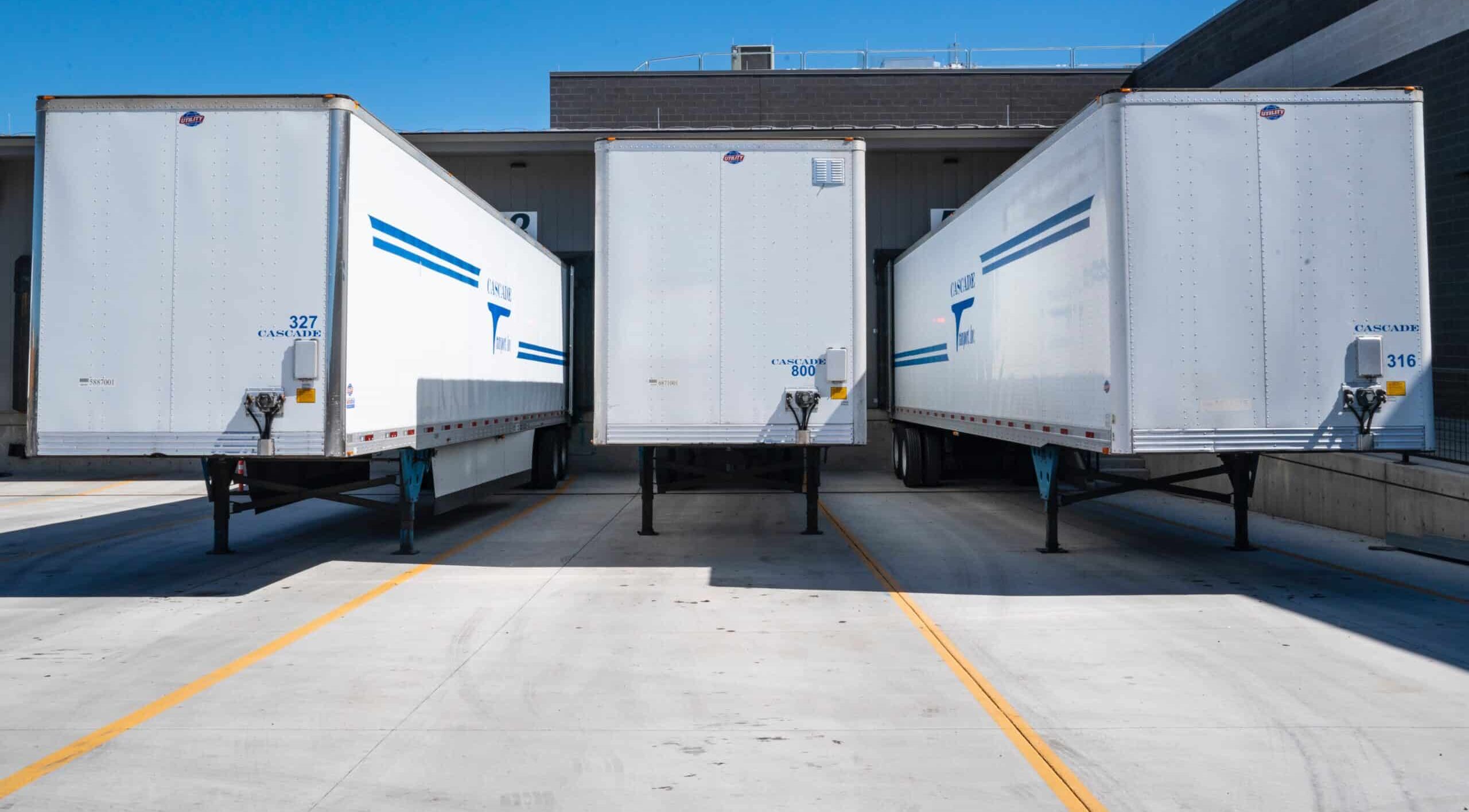Working with a logistics provider can help you manage your inventory, shipping, returns, customer service and various other details of your business. With the right provider, you can be much more hands-off with your supply chain, allowing you to focus more on the product development process, marketing tactics and all other aspects of growing your business while the experts handle the rest.
But as far as a logistics services provider goes, there are many different types, all of which offer varying services. Here’s what you need to know before selecting a partner.
How Do Logistics Companies Work?
Logistics companies help manage the flow of goods to and from your business. It can start with the supply chain for raw goods to manufacture your product and go all the way to managing and tracking shipments to customers.
Logistics work requires careful strategy and expertise because there are many moving parts. Ensuring that each package reaches a customer on time is essential in today’s ecommerce landscape where customer expectations are high.
Managing logistics internally can result in costly expenses, which is a major reason why many companies choose to outsource the work instead.
What Are the Types of Logistics Providers?
There are five types of logistics providers:
- 1PL: First-party logistics companies offer shipping services as well as the importing and the exporting of products. You might also find a 1PL company that will manufacture your goods on your behalf. The company does all the work with its own staff without outsourcing any of the logistics.
- 2PL: Second-party logistics companies own transportation vehicles, such as ships, aircraft and trucks to move products.
- 3PL: Third-party logistics companies provide services for the entire supply chain. These experts help you outsource the complicated process of managing inventory, picking and shipping goods, warehousing and more.
- 4PL: Fourth-party logistics providers work a lot like 3PL companies except that they use their own technology to manage the process for you.
- 5PL: Fifth-party logistics providers are often linked with your ecommerce provider. These companies also help with creating and organizing your network for the supply chain.
Is Logistics the Same As Transportation?
The term logistics encompasses far more than transportation. It also includes activities, such as inventory, warehousing, returns, forecasting, exporting, product inspection, customs and so much more.
Why Do You Need Logistics?
Logistics services aid in moving inventory at an affordable price. Managing the process in-house requires ample space and staffing that most companies do not have.
By distributing staffing and warehousing across hundreds of customers, logistics companies can offer the service at a lower cost than you would pay to complete the same services within your business.
Example of Logistics
If you’re still not sure how logistics might work related to your business, here’s an example of logistics to show how the work is distributed. The logistics partner works with suppliers to get raw goods to the facility to prepare for manufacturing inventory and then assembles your products.
Your company might maintain this activity depending on your agreement with your logistics partner. Your manufactured products then travel to various fulfillment centers to get your inventory closer to your customers.
Once a customer places an order, the logistics company picks, packs and ships the order based on the shipping speed the customer selected. The logistics partner can work with USPS, FedEx, UPS or DHL to transport the products.
Both you and the logistics company can track the shipment using technology and see when the package reaches the end customer. If anything is wrong, the customer can use your website or customer service team to request a return or exchange.
The logistics partner then receives the product and returns it to inventory if nothing is wrong with it.
Services Logistics Companies Provide
The specific services that a third-party logistics provider offers will vary and you might be allowed to select from a service tier based on your preferences for outsourcing the work. However, here’s an inclusive list of what you might find from a partner to jumpstart the interview process to find the best one for your company.
Warehousing and Material Handling
After you manufacture a product, you must have a plan for where it goes next to await customer orders. Most manufacturers make products in large quantities and then store them due to the cost of production.
But with tons of product inventory now on hand, you need a plan for what to do with the products. Maintaining an entire warehouse can be expensive, which is where having a third party rent out some of its warehousing space to you can be ideal.
Then, the logistics service can provide material handling once a customer orders the product to pick and pack the goods. Different types of products might also require different types of warehousing, such as in the case of temperature-controlled products or especially large and heavy products. That’s where working with an expert can help you get started.
Distributed Inventory
Placing products at different fulfillment centers helps you stage the products closer to the end customer, which reduces transportation time. That way, customers get their orders faster and you’ll pay less for shipping.
Managing multiple fulfillment sites on your own would likely be quite costly. That’s where it’s beneficial to partner with a third party that has fulfillment centers in the areas where you operate.
Technology Integration
Each logistics provider will have different ecommerce platforms that it integrates with. Ensure that your partner integrates with the technology you’re already using to avoid large projects to revamp your technology.
With the right technology integration, your logistics provider will be able to see orders and customer inquiries. And you’ll be able to see where orders stand at all times to provide the best customer service possible.
Custom Packaging
Branding helps make you memorable. Many third-party logistics companies will package and ship your products in custom packaging. That way, your customers will know exactly who the package is from long before they open it.
Additionally, their neighbors will get some exposure to your company when they pass by and see the branded package on their neighbor’s porch.
Customer Service Support
You want to know that you can get in touch with your logistics partner with ease, either by phone or electronic communication. This will ensure nothing falls through the cracks and that your customers get a consistent, quality experience with your company every time.
Test the quality of the third-party logistics provider’s customer service before committing to their service. You don’t want to find out later that they are unreachable when you encounter problems with a shipment.
Optimizing Logistics With an Expert Partner
Working with a logistics provider is like building an extension to your team with the goal of ensuring that all aspects of your supply chain run smoothly. It’s a wise move for growing businesses that want to create a modern ordering experience for all customers.



